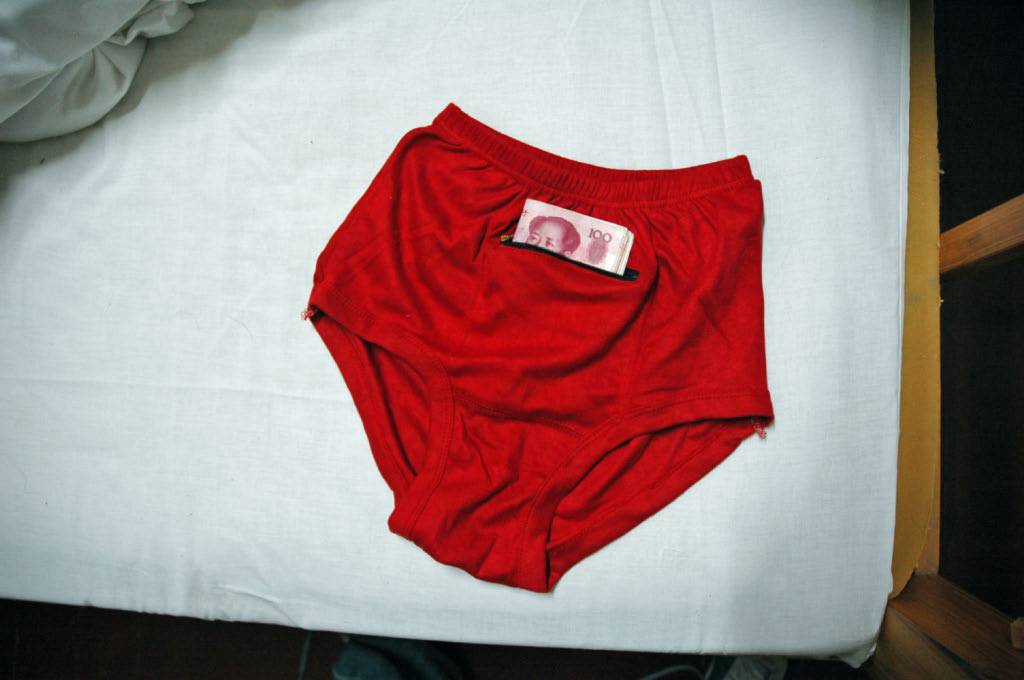Street market in Lhasa sells a wide range of underwear with security pocket for men (shown but not tested) and women. We’ve had blind user study participants in India who used scent amongst other criteria to know the denomination of bank-notes, and I wonder to what extent the inevitable smell of sweat/urine/blood would affect this understanding? In what other contexts will objects pick up a physical or digital scent?
It’s easy to underestimate how the perceived risk of theft affects how objects are carried and then positioned when not in use, and how for people living in that environment it becomes second nature.
Spent a couple of hours in coffee shop in Chengdu – observed the same behaviour on two separate tables: person A sits down and (is later proved to be) waiting for person B. Person A takes off coat and hangs it on the inside of the back of the chair and waits 10+ minutes for person B to arrive. Person A has strong tactile feedback with the coat. Person B arrives and takes off coat and hangs it on the outside of the chair – minimal tactile feedback to the coat. Person B is able to rely on the eyes of Person A to notice a theft attempt of the the coat itself, whereas Person A needs to fend for herself for a while at least and hangs the coat in in a manner that makes its removal more noticeable.
Yes, should have taken a photos to explain this, but it simply wasn’t the right thing to do in the context. And yes, 80 RMB (8 Euro) for a cafe presse with fresh ground coffee was a little steep.
